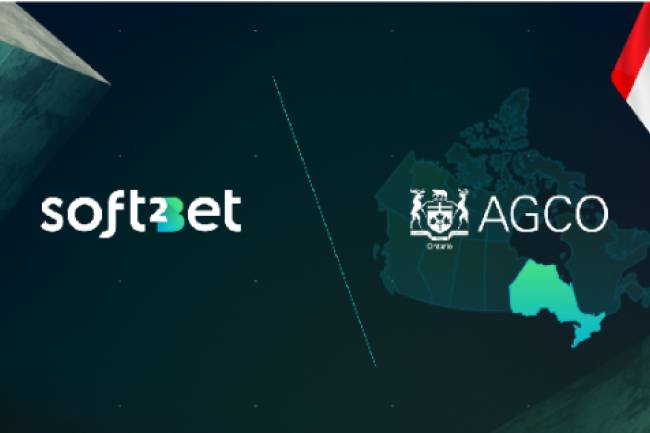
How Finance and Accounting Services are Revolutionized with FaaS
Finance and accounting services are critical components of any business, regardless of its size or industry. These services involve managing financial transactions, generating financial reports, and ensuring compliance with financial regulations. However, traditional finance and accounting services can be time-consuming and costly, especially for small businesses. This is where Function-as-a-Service (FaaS) comes in - a cloud computing model that allows developers to create and run application functionalities without the need for managing infrastructure.
In this article, we will explore how finance and accounting services are being revolutionized with FaaS. We will discuss the benefits of using FaaS for accounting automation, real-time financial data processing, enhanced security, improved accessibility and scalability, and cost savings. We will also provide examples of FaaS tools that businesses can use to optimize their finance and accounting operations. By the end of this article, you will have a better understanding of how FaaS can help your business thrive in today's fast-paced business environment.
Finance and Accounting Services are Revolutionized with FaaS
Streamlined Accounting Processes
Accounting processes can be tedious and time-consuming, often requiring significant resources and attention to detail. However, with FaaS, businesses can streamline their accounting processes, reduce errors, and increase efficiency.
FaaS solutions can automate repetitive accounting tasks, such as data entry and reconciliation, freeing up valuable time for accounting professionals to focus on more complex and strategic tasks. Additionally, FaaS tools can provide real-time updates on financial transactions, allowing businesses to stay up-to-date on their financial status and make informed decisions.
FaaS has the potential to revolutionize finance and accounting services, making them more efficient, secure, and accessible. By leveraging FaaS solutions, businesses can streamline their accounting processes, process financial data in real-time, and enhance security measures. Furthermore, FaaS solutions can facilitate remote access to financial services and enable businesses to scale their financial operations quickly.
In summary, FaaS solutions can streamline accounting processes, reduce errors, and increase efficiency, providing businesses with more time and resources to focus on growing their operations.
Real-Time Financial Data Processing
Processing financial data in real-time is crucial for businesses that need to make quick decisions based on changing financial conditions. Traditional accounting processes typically involve batch processing, which can result in delays and missed opportunities for businesses. However, FaaS solutions enable real-time financial data processing, allowing businesses to access up-to-date financial information and make informed decisions quickly.
FaaS tools can integrate with a variety of financial data sources, including bank accounts, payment gateways, and financial market data feeds, to provide real-time updates on financial transactions and market trends. This allows businesses to stay on top of their finances and make timely decisions based on accurate and relevant data.
One example of a FaaS tool that enables real-time financial data processing is Intuit QuickBooks Online, a cloud-based accounting software that offers real-time transaction tracking, automated invoicing, and payment processing. QuickBooks Online integrates with various financial institutions, allowing businesses to track their financial transactions in real-time and make informed decisions based on up-to-date information.
Another example of anFaaS tool that facilitates real-time financial data processing is Plaid, a financial data platform that allows businesses to connect to bank accounts and other financial data sources. Plaid provides businesses with real-time access to financial data, including transaction history, account balances, and payment status, enabling businesses to stay on top of their finances and make data-driven decisions.
In summary, FaaS solutions enable real-time financial data processing, allowing businesses to access up-to-date financial information and make informed decisions quickly. This can be a game-changer for businesses that need to respond quickly to changing financial conditions and market trends.
Enhanced Security
Security is a top concern for businesses when it comes to finance and accounting services. Traditional accounting systems are vulnerable to security breaches, which can result in financial loss and reputational damage. However, Strategic financial solutions offer enhanced security measures that can protect businesses from security threats.
FaaS solutions offer several security benefits, including:
- Security-focused architecture: FaaS solutions are built with security in mind, using modern security protocols and best practices. This ensures that FaaS systems are more secure than traditional accounting systems.
- Encryption: FaaS solutions use encryption to protect sensitive financial data, ensuring that it is secure during transmission and storage.
- Multi-factor authentication: FaaS solutions often require multi-factor authentication, which adds an additional layer of security to the login process. This can prevent unauthorized access to financial data.
- Regular security updates: FaaS solutions are regularly updated with security patches and updates, ensuring that they are protected against the latest security threats.
One example of anFaaS tool that offers enhanced security is Sage Intacct, a cloud-based accounting software that provides multi-factor authentication, encryption, and security-focused architecture. Sage Intacct also offers role-based access control, ensuring that only authorized users can access sensitive financial data.
Another example of anFaaS tool that provides enhanced security is Oracle Cloud Infrastructure, a cloud-based infrastructure platform that offers encryption, network security, and identity management features. Oracle Cloud Infrastructure is built with security in mind, using modern security protocols and best practices.
In summary, FaaS solutions offer enhanced security measures that can protect businesses from security threats. By using FaaS tools with built-in security features, businesses can ensure that their financial data is protected and secure.
Cost Savings
FaaS solutions can help businesses save money by reducing the costs associated with traditional accounting systems. Traditional accounting systems can be expensive to implement and maintain, requiring significant investments in hardware, software, and personnel. However, FaaS solutions are typically subscription-based, making them more affordable and cost-effective for businesses.
FaaS solutions offer several cost-saving benefits, including:
- Reduced hardware and software costs: FaaS solutions are cloud-based, meaning that businesses do not need to invest in expensive hardware or software to use them. This can result in significant cost savings for businesses.
- Reduced personnel costs: FaaS solutions automate many of the tasks associated with accounting and financial management, reducing the need for personnel to perform these tasks. This can result in significant cost savings for businesses.
- Scalability: FaaS solutions are typically subscription-based, allowing businesses to scale their operations up or down as needed. This can help businesses avoid the costs associated with overprovisioning or underprovisioning their accounting systems.
- Reduced risk of errors:FaaS solutions automate many of the tasks associated with accounting and financial management, reducing the risk of errors that can result in financial losses. This can result in cost savings for businesses by avoiding costly mistakes.
One example of anFaaS tool that offers cost savings is Xero, a cloud-based accounting software that offers invoicing, payment processing, and financial reporting features. Xero is subscription-based, making it more affordable and cost-effective for businesses than traditional accounting systems.
Another example of anFaaS tool that provides cost savings is Wave, a cloud-based accounting software that offers invoicing, payment processing, and financial reporting features. Wave is free to use, making it an ideal solution for small businesses and startups that need to keep costs low.
In summary, FaaS solutions can help businesses save money by reducing the costs associated with traditional accounting systems. By using FaaS tools, businesses can reduce hardware and software costs, personnel costs, and the risk of errors, while also improving scalability and flexibility.
Conclusion:
In conclusion, Finance and Accounting Services (FaaS) have revolutionized the way businesses manage their financial and accounting processes. FaaS solutions offer several benefits, including streamlined accounting processes, real-time financial data processing, enhanced security, improved accessibility and scalability, and cost savings.
FaaS solutions automate many of the tasks associated with financial and accounting management, reducing the risk of errors, improving accuracy, and increasing efficiency. They also provide real-time financial data processing, allowing businesses to make informed decisions quickly and efficiently.
FaaS solutions offer enhanced security features, including secure data storage and encryption, helping businesses protect their financial data from cyber threats.
Improved accessibility and scalability are also key benefits of FaaS solutions, allowing businesses to access financial and accounting services from anywhere and scale their operations up or down as needed.
Finally, FaaS solutions offer cost savings by reducing the costs associated with traditional accounting systems, including hardware and software costs, personnel costs, and the risk of errors.
Overall, FaaS solutions offer a powerful tool for businesses to manage their financial and accounting processes more efficiently, accurately, and securely. By adopting FaaS solutions, businesses can improve their competitiveness, reduce costs, and drive growth in today's fast-paced business environment.













